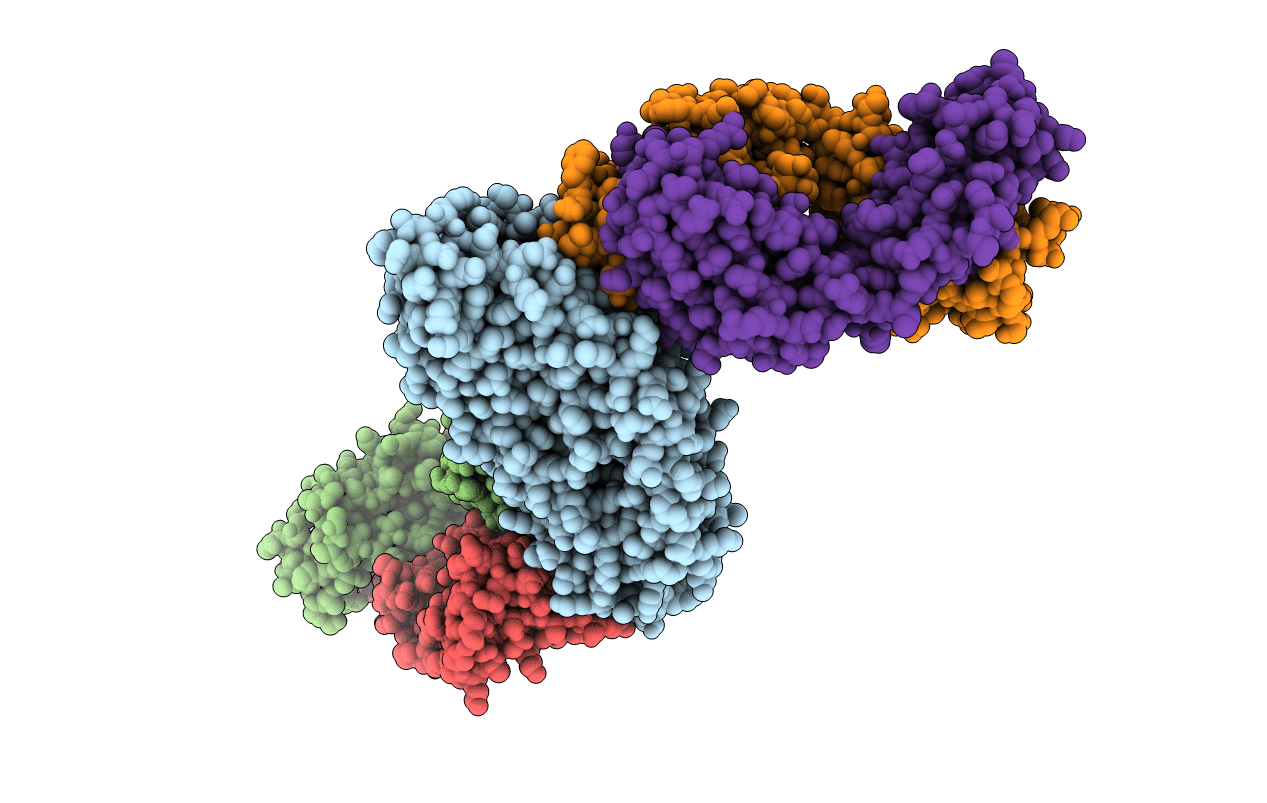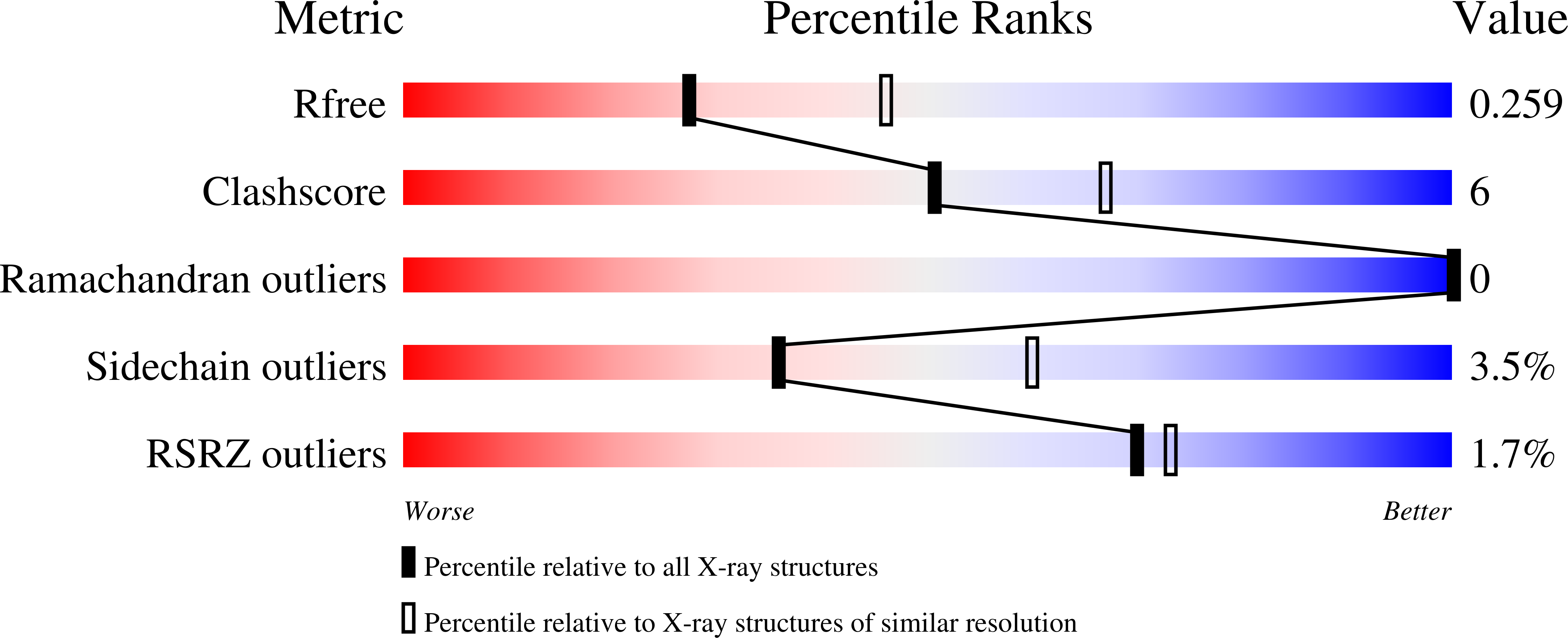
Deposition Date
2021-08-18
Release Date
2022-02-09
Last Version Date
2024-11-06
Entry Detail
PDB ID:
7PHU
Keywords:
Title:
PfRH5 bound to monoclonal antibody R5.015 and R5.016 Fab fragments
Biological Source:
Source Organism(s):
Plasmodium falciparum (isolate 3D7) (Taxon ID: 36329)
Homo sapiens (Taxon ID: 9606)
Homo sapiens (Taxon ID: 9606)
Expression System(s):
Method Details:
Experimental Method:
Resolution:
2.53 Å
R-Value Free:
0.27
R-Value Work:
0.23
R-Value Observed:
0.23
Space Group:
C 2 2 21


